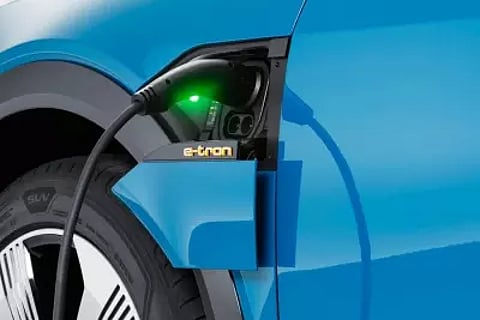

NEW DELHI: The use of electric cars would increase by almost 10 times worldwide by 2030 and the share of renewables in the global electricity mix would increase to 50 per cent by 2030 from the current 30 per cent amid the shift to new clean energy technology that is underway, according to the International Energy Agency’s (IEA) World Energy Outlook (WEO) 2023 report released on Tuesday.
Renewables are set to contribute 80 per cent to new power-generation capacity by 2030 under current policy settings, with solar power alone accounting for more than half of this expansion, the IEA report said.
The report states that clean technologies will play a significantly greater role than today.
“This includes almost 10 times as many electric cars on the road worldwide; solar PV generating more electricity than the entire US power system does currently; renewables’ share of the global electricity mix nearing 50 per cent, up from around 30 per cent today; heat pumps and other electric heating systems outselling fossil fuel boilers globally; and three times as much investment going into new offshore wind projects than into new coal- and gas-fired power plants,” the report states.
All of those increases are based only on the current policy settings of governments around the world. If countries deliver on their national energy and climate pledges on time and in full, clean energy progress would move even faster, it added.
However, even stronger measures would still be needed to keep alive the goal of limiting global warming to 1.5 degrees Celsius, the report points out.
In this scenario, the share of fossil fuels in global energy supply, which has been stuck for decades at around 80 per cent, declines to 73 per cent by 2030, with global energy-related carbon dioxide (CO2) emissions peaking by 2025.
“The transition to clean energy is happening worldwide and it’s unstoppable. It’s not a question of ‘if’, it’s just a matter of ‘how soon’ – and the sooner the better for all of us,” said IEA Executive Director Fatih Birol.
“Governments, companies and investors need to get behind clean energy transitions rather than hindering them,” he added.
As things stand, demand for fossil fuels is set to remain far too high to keep within reach the Paris Agreement goal of limiting the rise in average global temperatures to 1.5 degrees.
This risks not only worsening climate impacts after a year of record-breaking heat, but also undermining the security of the energy system, which was built for a cooler world with less extreme weather events, the report adds.